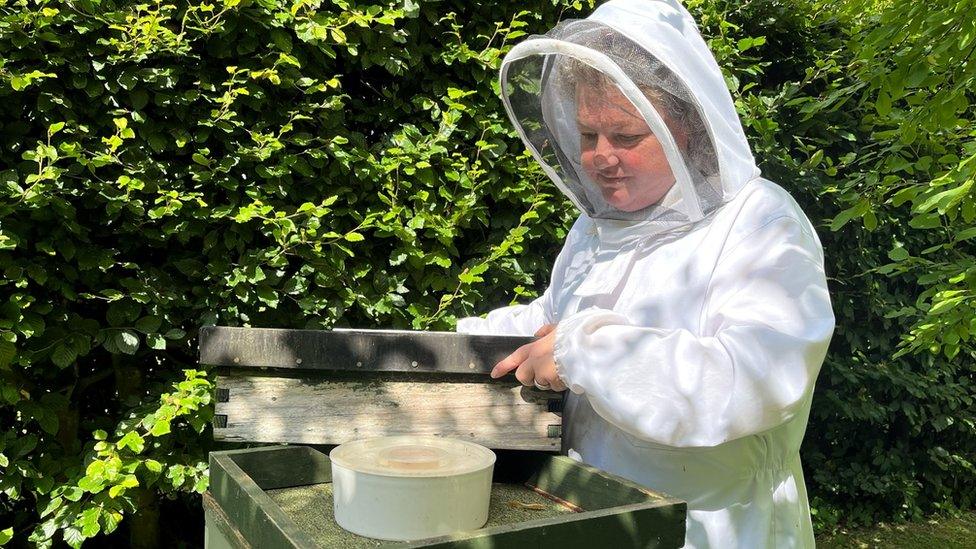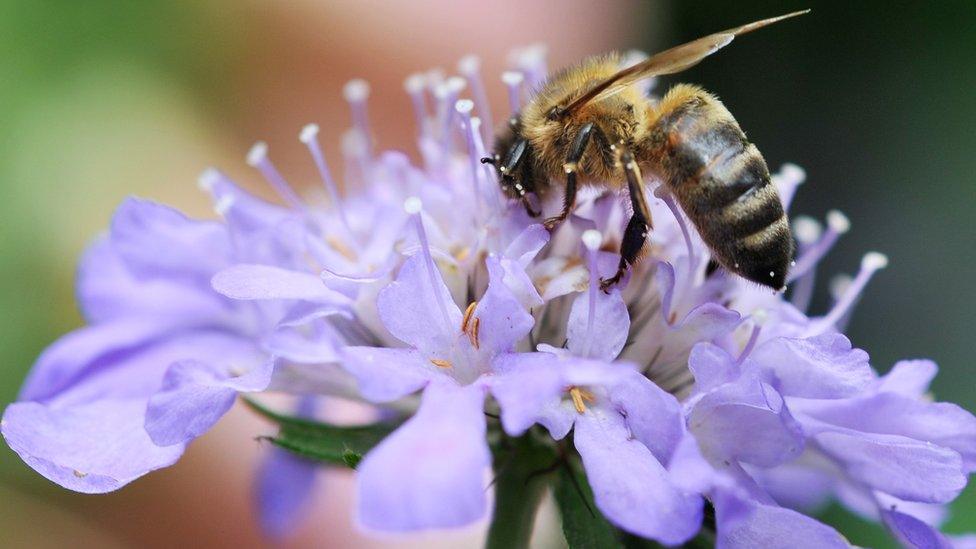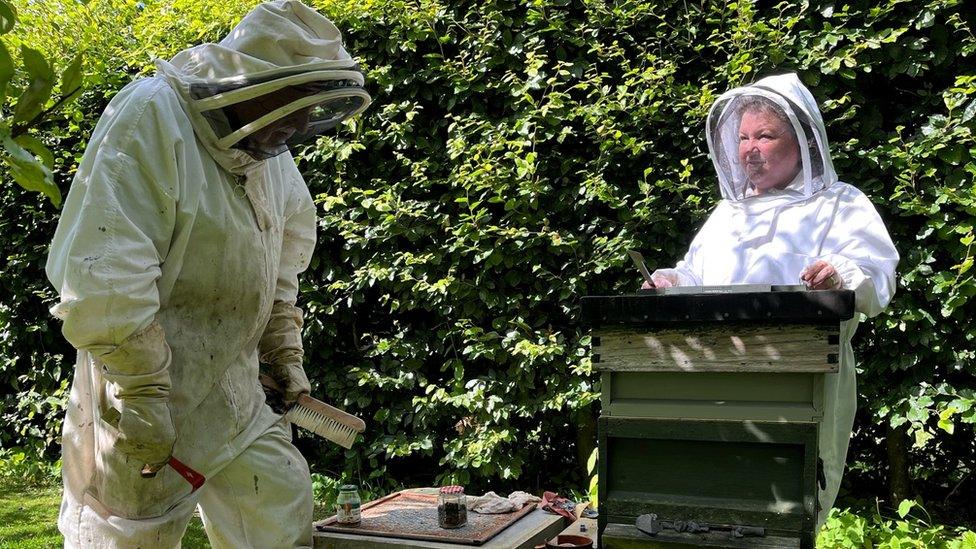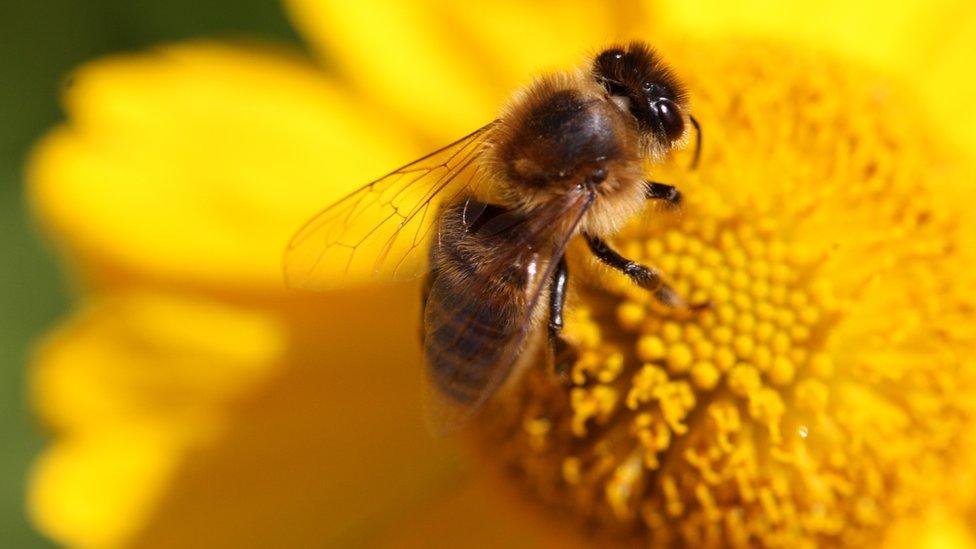Poison blamed for Coldstream honey bee deaths
- Published

Lou Washington hopes to revive the lost hives next year
Bee keepers in a town in the Scottish Borders believe they have lost up to 300,000 honey bees to poisoning.
The discovery was made at two different clusters of hives on the outskirts of Coldstream.
With bee numbers declining across the UK, keeper Lou Washington said all gardeners and land managers should take extra care with chemicals.
"We were scooping up thousands of dead bees for days - inside and outside the hives," she said.
Along with bumblebees, butterflies and hoverflies, honey bees play a significant role in pollinating plants.
Numbers of the domesticated honey bee are falling due mainly to a reduction in the amount of beekeepers.

Honey bees are important pollinators
Lou began her hobby six years ago and has progressed from a single hive to tending five this summer.
She said: "I check my bees every day and when I came down this time, I noticed that their behaviour was unusual.
"I contacted a fellow beekeeper nearby - he is much more experienced than I am - and when he went to check his bees, they were doing the same.
"He recognised straight away that their disorientation and erratic behaviour was down to poisoning.
"They soon started dying and between us we have calculated that we've lost between 200,000 and 300,000 bees."

Lou and her neighbour have lost around hundreds of thousands of bees between them
Both beekeepers' hives were previously healthy and full of honey. They also carry out regular checks for destructive varroa mites.
Lou added: "There can be no other explanation for our hives being wiped out other than poison."
Many harmful pesticides have been banned in recent years to better protect pollinators and other wildlife.
Local authorities and governments are also promoting an increase in flowering meadows to support insects and wider biodiversity.
However, concern remains over many chemicals that can still be sprayed in gardens and fields.

Lou has urged gardeners to check before they spray anything which might harm bees
Lou added: "I would urge gardeners, farmers and landowners to check before they spray.
"I am sure plenty of people have old supplies of pesticides or herbicides tucked away in their sheds, and they could contain chemicals that are now banned.
"Event current sprays should be used sparingly - why not just pull up that weed rather than spray it?"
Scottish government agency, Science and Advice for Scottish Agriculture (SASA), carries out tests for chronic bee paralysis virus and pesticides.
Matthew Richardson, a science and health officer with the Scottish Beekeepers Association, said: "We can't completely rule out chronic bee paralysis virus, but if it is poison, it is as likely to have come from gardens as anywhere else.
"Poisoning almost always came from agricultural spraying in the 1970s and 80s, but it is heavily regulated these days.
"Unfortunately there are no regulations about what people can spray in their gardens, and that is where a lot of problems lie for bees and beekeepers."